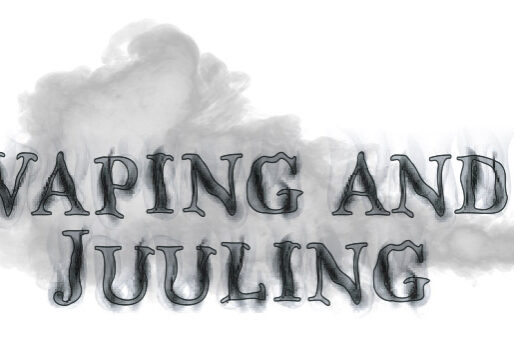Somewhere around the age of three, when children begin to understand parents may not know what they actually did or didn’t do, your precious little angel may begin to tell big whoppers; “Baby Jack made that mess;” or, “I played with a dinosaur today and rode on his back.”
Before you panic, thinking your child is destined for a life of crime, let’s take a look at when children lie, why they lie, and how to teach them to tell the truth.
Children tell lies for many reasons
Children tell lies for a variety of reasons. They may be afraid of getting in trouble, wanting attention or testing boundaries. With the very young, they may just enjoy a good story and haven’t yet learned the distinction between fantasy and real life.
If a child breaks a family rule, or makes a big mess, he may be afraid of the consequences. When parents see the lie was meant to cover a normal child “accident,” it’s best to reassure that we all make mistakes and then work together to clean it up. When the lie was meant to cover breaking a family rule, it’s best to set a consequence in line with the infraction —perhaps forgoing play with a favorite toy for a period of time. Setting reasonable consequences builds trust and reinforces the family value of both the rule and truth-telling. When consequences involve physical punishment, children are much more likely to lie in an effort to avoid the pain.
Children need practice in separating fantasy from real life
Some “lies” are merely pretending. Wouldn’t it be fun to have an imaginary friend, or be able to fly to the moon and back? This is absolutely normal behavior and part of a child’s growth and development. Young children are learning right and wrong and need experience to tell the difference between truthfulness and lying. Plus we adults read them stories filled with creativity, pretending and magical acts. So children need experience and practice in separating fun, creative fantasy from everyday real life.
Telling fibs is different at different ages
Children begin to experiment with telling fibs at about age three when their language is developed enough to express their thoughts clearly. They are experimenting with the lines between fact and fantasy. They understand they may displease adults with some behaviors and want to avoid being in trouble.
From ages four to six children are able to tell more sophisticated lies. However, when questioned about the circumstances, most children will eventually relent and tell the truth.
Fibs are an opportunity to teach honesty
As children grow older they learn they can tell a lie and not get caught. They’ve learned more about how other people think, and know when their fabrication is believable. That’s why it’s so important as parents to take the time to teach honesty as a family value from babyhood on up.
Whenever your child tells an untruth, you have the opportunity to teach. If they share a creative idea as fact, “My doll says she is hungry now.” You have the opportunity to teach: “It would be fun if your doll could talk, wouldn’t it?”
If your child makes a mess is made and fibs about it (“The dog spilled the juice”), you can say, “It’s okay if you accidentally spilled. We all spill sometimes. Let’s clean up the mess.”
If your child lies to cover up a broken rule, such as “I didn’t hit my brother,” you can impose a fair and reasonable consequence and reinforce family values: “We don’t hit and our family tells the truth.”
Teaching our children to be truth tellers
Be a good role model.
You can talk all day about being honest, but if your children hear you tell a lie, they’ll know you don’t really mean it. Even small fibs told by parents are confusing to children trying to navigate the rules of the home.
Notice and encourage the truth
Both in real-life situations and when watching television or videos, there are opportunities to notice who is telling the truth and who is not. “Oh, dear, that character is telling a lie. What happens now?”
When your child does tell the truth, pay a compliment. Applaud truth-telling whenever it happens. Children need to hear your praise and encouragement. “I know you can do the right thing.” And “I know you can make the right choices.”
Help children understand the difference between truth and fantasy.
Enjoy fantasy tales with your children, but talk about reality. “It would be fun if animals could really talk, but it’s just pretend.”
Talk about the importance of being honest.
“When people don’t tell the truth they feel bad. They may be worried or feel guilty. It’s so much better to tell the truth.”
Stay calm
Explosive anger or asking, “Who did that?” will tempt a child to lie to avoid trouble. Whenever possible, stay calm and get to the bottom of the problem. We always want our kids to trust us enough to tell the truth in the event of any kind of dangerous or abusive situations. Children have to know it’s safe to admit a problem.
Share childhood memories that help teach honesty.
Kids love to hear stories of their parents as young children. Tell how you learned to tell the truth and resist lying. Share hard lessons learned.
Read books that that teach the importance of truth
We all know about the boy who cried wolf. Take the time to find stories that teach the importance of telling truth. Some good choices include:
- The Honest to Goodness Truth by Patricia McKissack and Giselle Potter
- What Should Danny Do? By Adir Levy
- Scout’s Honor: A Kid’s Book about Lying and Telling the Truth by Tiffany Obeng
Helping kids master truthfulness
An occasional fib is a normal part of a child’s life, and for most kids it doesn’t become a habit. With patient teaching and understanding your child will master truthfulness. When honesty is held up and valued in our everyday lives, it helps our kids thrive as responsible citizens.
Posted in: Health & Nutrition
Comment Policy: All viewpoints are welcome, but comments should remain relevant. Personal attacks, profanity, and aggressive behavior are not allowed. No spam, advertising, or promoting of products/services. Please, only use your real name and limit the amount of links submitted in your comment.
You Might Also Like...

Growing Garden Memories and Good Food At Red Gate Ranch
Two special events in Red Bluff happen each April: The Red Bluff Round-Up and temperatures favorable for summer garden planting. It took much trial and error in our family’s garden […]

Staying Healthy During the Cold and Flu Season
There is no instantaneous way to get rid of a cold once it has set in, so prevention is the key! Here are a few tips for keeping healthy during […]

Vaping and JUULing; Parents Need to Educate Themselves About E-Cigarettes
Knowledge is power, and ignorance is often not blissful, especially when parenting. Most parents agree that raising children is a constant learning experience. Many of the decisions and choices parents […]

The Campaign for Safe Cosmetics – Empowering Consumers to Make Healthy Choices
Last March celebrity tabloids were abuzz when toddler Vivienne Jolie-Pitt was spotted wearing lipstick in public. Observers were decidedly focused on the appropriateness of the 3-year-old’s “dress up” demeanor. Noticeably […]




